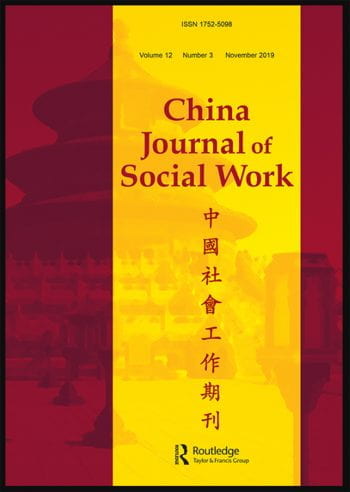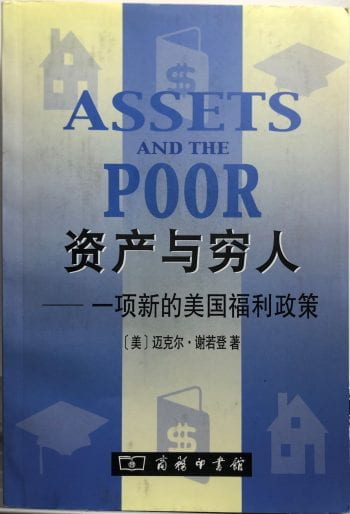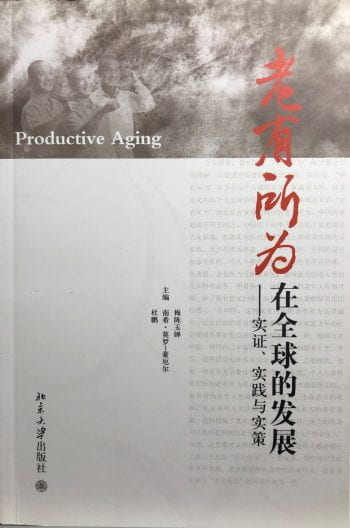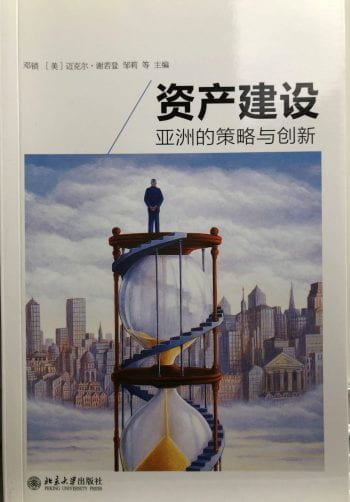
In 2018, China celebrated its 30th anniversary of the re-establishment of social work in the country. Both that year and in 2019, Next Age Institute (NAI) Director Michael Sherraden provided keynote addresses for conferences at Peking University (PKU) in Beijing. Emphasizing the importance of longstanding partnerships between Washington University and China, Sherraden said they “build trust, and trust is a firm foundation for future international research and joint projects.”

Now, a new article in the China Journal of Social Work, titled “Re-emergence of social work in modern China: A perspective by Chinese and U.S. partners” charts the complex history of social work’s return to China and describes the true academic partnerships that helped to make it possible. Written by Sherraden and a number of Asian and U.S. scholars, the article provides a global perspective about the value of such partnerships.
Sherraden defines the longstanding relationship between Washington University and the various Chinese universities as a true partnership: “one built on the mutual substantive academic agendas and long-term commitment and trust.”
An example of such true partnership is the longstanding and productive work between PKU, Hong Kong Polytechnic University (PolyU) and Washington University (WU). With the foundation of international collaboration being built as early as the 1970s under the leadership Sibin Wang, Angelina Yuen-Tsang and Shanti Khinduka, the PKU-PolyU-WU partnership was formalized in 1999.
Since then, a number of social work programs, international conferences, book and journal publications, faculty training and entire bodies of research have proliferated and flourished as a result of the PKU-PolyU-WU partnership.
The most recent conferences took place in November of 2019, with Sherraden and Li Zou representing WU at the China Women’s University’s “Social Work Education and Curriculum Development: International Experience and Local Practice” conference and at PKU’s Global Scholars Seminar Series in Beijing.
During his keynote address at China Women’s University, Sherraden observed that “Social work can be very proud of its commitment to social care and helping the disadvantaged, but this is not enough…Social work has always had an additional focus on development. Social development emphasizes full inclusion, protections for rights and justice and enabling all people to reach their potential.”

At PKU’s seminar, Sherraden highlighted the research generated from the two decades of the PKU-PolyU-WU partnership: “three areas of research and policy innovation—asset building, productive aging and financial capability—are among the most productive and well-known given their substance, depth and impact.”
Asset-building research in China caught on in 2004 when Sherraden’s 1991 book Assets and the Poor was translated into Chinese. Since then, direct examples of research informing policy followed, in the form of asset-building pilot programs for rural Chinese farmers led by Baorong Guo and Li Zou, pilot child development accounts project for the disadvantaged led by Suo Deng of Peking University and asset building being applied as a theoretical framework for social work practice with ethnic minorities and women in rural and post-earthquake settings led by Hok Ben Ku.

Led by Nancy Morrow-Howell, productive aging research was adapted to the Chinese context when it was selected as major theme for the Fifth Annual International Symposium and Lectures in Social Policy at Shandong University in 2009, which CSD co-organized. Several special issues and books have been published as a result of this work.
As trends in income and wealth inequality and increasing financialization grow in China, Margaret Sherraden and Jin Huang are also adapting financial capability and asset building (FCAB) research for China’s social workers. In partnership with educators in China, they are integrating FCAB work into research, education and practice—through new MSW programs and book translations—in China.

In addition to making these bodies of research available in China, the PKU-PolyU-WU partnership has enabled the training of countless new social faculty. China now has 150 universities offering MSW education. Moreover, Chinese scholars have trained at the Brown School at WU through doctoral and post-doctoral training and visiting scholar positions.
The importance of true partnership cannot be overstated in making possible such international collaboration. Long-term commitment and trust takes time, and NAI is proud of its role of investing in the long-term partnership with China. Such partnerships are essential to advancing a social development agenda in spite of geopolitical conflict and pandemics. As Sherraden puts it in his conclusion to Re-emergence of social work in modern China: A perspective by Chinese and U.S. partners, “In a world where large political and economic forces can pull people apart, this example of research and policy collaboration is a small yet meaningful contribution to pulling people together.”